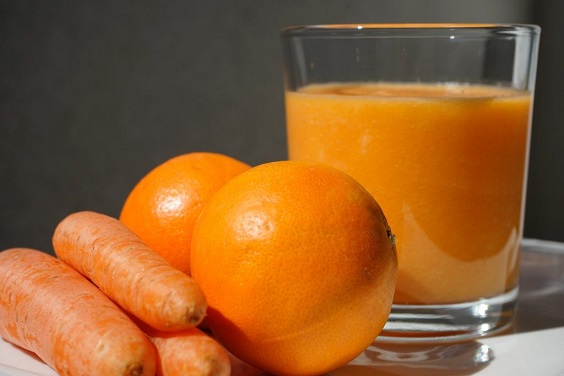Recent research studying almost 44,000 men and women finds that higher levels of C-vitamin és a vitamin E in the diet are associated with lower risk of Parkinson’s Disease1.
Vitaminok C and E are antioxidants2. Az antioxidánsok ellensúlyozzák az oxidatív stresszt, amelyet a szabad gyökökként ismert, rendkívül reaktív molekulák okoznak2. Az oxidatív stressznek számos forrása van, mint például a napfény, a levegőszennyezés, a cigarettafüst és a testmozgás2. Oxidative stress can cause cell damage (through damage to molecules in the body) and can contribute to many diseases such as cancer, heart disease, diabetes, Alzheimer’s disease, Parkinson’s betegség and even eye diseases2. Ezért az antioxidánsok hasznosak lehetnek a molekuláris károsodások megelőzésében és a sejtek egészségének megőrzésében.
A recent Swedish study explored the effects of certain dietary factors on the incidence of development of Parkinson kór (PD) in almost 44,000 men and women1. These factors included dietary intake of vitamin C, vitamin E and beta-carotene1. Ezen specifikus mikrotápanyagok bevitelét összehasonlították a PD előfordulási gyakoriságával a csoportban1.
A béta-karotinnak nem volt összefüggése a PD kockázatával1. However, intake of vitaminok C and E was inversely correlated to the risk of PD1 jelezve, hogy ezek az antioxidánsok bizonyos neuroprotektív hatást fejtettek ki, ami csökkentette a PD előfordulását.
This study may allow the inference that it may be beneficial to increase these vitaminok in the diet to reduce risk of PD, but it does not necessarily mean that the association seen was caused by the intake of these vitaminok, as people ingesting more of these vitaminok might just have healthier diets and lifestyles. It may be the case that there was a causal relationship but this is hard to prove from an association study. There could also be a non-causal relationship; supporting this is the finding from an older study comparing levels of antioxidants in the blood of PD patients which found no evidence that antioxidants contributed to onset or progression of PD3. Lastly, both theories may be true, where vitaminok C and E in diet played a minor role. Regardless, the overall message of intaking enough vitamin C (such as through eating oranges and strawberries) and vitamin E (such as through eating nuts and seeds) is probably conducive to good health.
***
Referenciák:
- Hantikainen E., Lagerros Y., et al 2021. Dietary Antioxidants and the Risk of Parkinson betegség. The Swedish National March Cohort. Neurology Feb 2021, 96 (6) e895-e903; DOI: https://doi.org/10.1212/WNL.0000000000011373
- NIH 2021. Antioxidánsok: mélységben. Elérhető online a címen https://www.nccih.nih.gov/health/antioxidants-in-depth
- King D., Playfer J. és Roberts N., 1992. Az A-, C- és E-vitamin koncentrációja idős, Parkinson-kórban szenvedő betegeknél.Postgrad Med J(1992)68,634-637. Elérhető online a címen https://pmj.bmj.com/content/postgradmedj/68/802/634.full.pdf
***






































